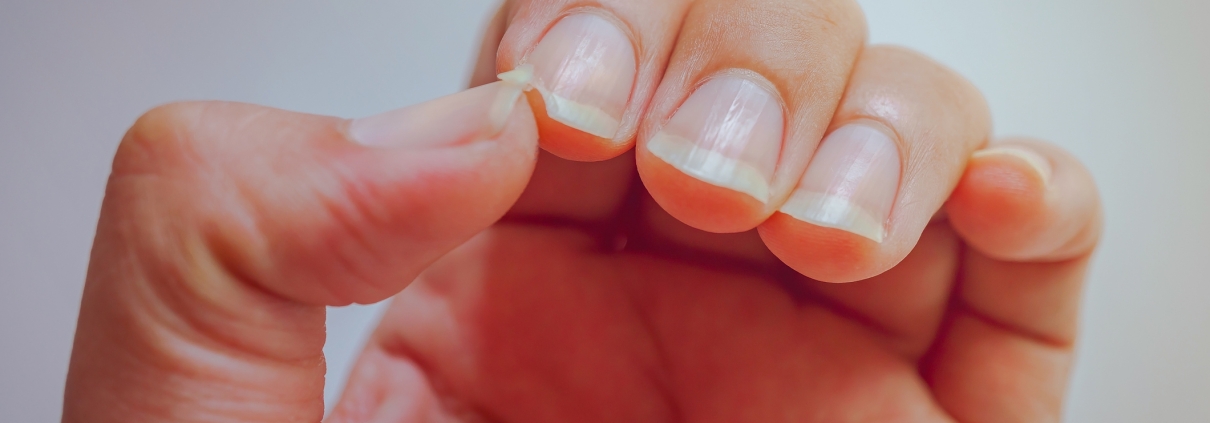Sensitive Nails
Sensitive nails are a common problem, affecting people of all ages. This condition often manifests as discomfort or pain when pressure is applied to the nails or when they come into contact with certain substances. Sensitive nails may also be brittle, prone to splitting, or easily irritated. There are a variety of causes for nail sensitivity, including lifestyle habits, environmental factors, and underlying health conditions. In this article, we’ll discuss the possible causes of nail sensitivity, effective care routines, and tips for preventing further irritation.
What Are Sensitive Nails?
Sensitive nails react to pressure, temperature changes, or exposure to irritants. People with sensitive nails may notice that their nails are easily damaged or that they experience pain or discomfort when doing everyday tasks. Sensitivity in nails can be temporary, often due to external factors, or more chronic, indicating potential health issues.
Common Causes of Sensitive Nails
Sensitive nails can be due to a range of factors, from external damage to internal health conditions. Here are some of the most common causes:
1. Frequent Use of Harsh Chemicals
- Chemicals in household cleaners, nail polish removers, and hand sanitizers can strip the natural oils from nails, leaving them dry and weak.
- Acetone-based nail polish removers are particularly harsh and can weaken nails, leading to increased sensitivity.
2. Repeated Use of Nail Products
- Overuse of nail polish, gel manicures, or acrylic nails can cause nails to thin and weaken, making them more sensitive.
- Gel and acrylic nails often require rough buffing or scraping to apply or remove, which can damage the nail plate over time, leading to pain and sensitivity.
3. Nutritional Deficiencies
- Nails require a variety of nutrients to remain strong and healthy, including biotin, vitamin E, iron, and zinc.
- A lack of these nutrients can make nails brittle, more prone to breakage, and sensitive to touch.
4. Underlying Health Conditions
- Certain health issues, like psoriasis, eczema, anemia, and hypothyroidism, can affect nail health, making them more sensitive.
- Psoriasis, in particular, can cause pitting and thickening of the nails, leading to discomfort and sensitivity.
5. Environmental Factors
- Cold, dry weather and frequent changes in temperature can dehydrate nails and skin, making them more sensitive.
- Extended exposure to water, such as frequent hand washing or swimming, can also weaken nails by stripping away natural oils.
6. Age-Related Changes
- As we age, our nails naturally become drier and more brittle due to decreased oil production in the skin. This can make nails thinner and more sensitive over time.
Signs and Symptoms of Sensitive Nails
Sensitive nails can present in various ways, often accompanied by visible or tactile changes. Here are common symptoms:
- Pain or Discomfort: Pain when pressure is applied to the nail or surrounding skin is a typical sign of nail sensitivity.
- Thin or Brittle Nails: Sensitive nails may become thinner and more prone to cracking, peeling, or breaking.
- Discoloration: Weak or damaged nails may appear pale, yellow, or have white streaks.
- Visible Ridges: Vertical or horizontal ridges on the nails can indicate that the nails are not growing smoothly, which may make them feel more sensitive.





